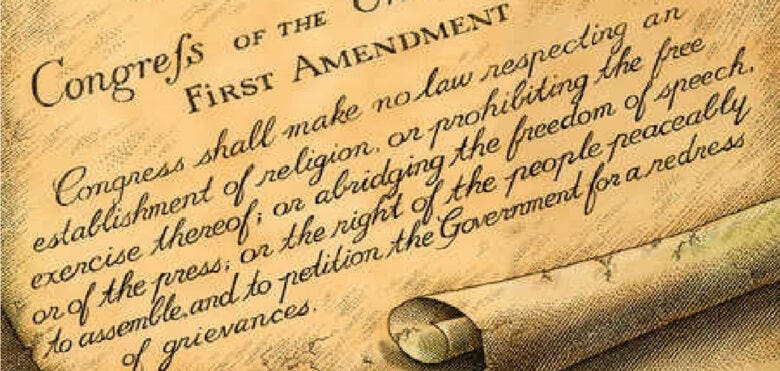It’s On Us
On the need to rethink the role of journalism in open societies
The following introductory remarks were given at the recent Newsgeist Unconference hosted by the Center for News, Technology, and Innovation. The remarks were not recorded at the event but a freshly recorded version of the remarks is available here.
These are extraordinary times. However, they are not unique in our world, nor, for that matter, in our own country. I know this directly.
My father-in-law, Dalton Trumbo, spent a year in federal prison in 1947 for contempt of Congress. He had his hugely successful screenwriting career blacklisted for 15 years. Why? Because he leaned on the First Amendment, not the Fifth, in refusing to answer questions about his political beliefs.
Trumbo had earlier written about the notorious Smith Act which imprisoned people for simply having read or possessed literature about an ideology that was seen as a threat to our country. While the Supreme Court has limited the application of the Smith Act as recently as 1969, it is still on the books and remains open to judicial interpretation.
The pain and retribution put on the Trumbo family lasted for years, sometimes even today. Think of your 10-year-old daughter, in this case my wife, being bullied, such that she couldn’t stay in school and finish fifth grade, because her dad was an apparent enemy of the state. Think of the black cars of federal enforcement agencies lingering outside your home.
This is NOT the first time.
History also tells us that the expansion of communications and expression, from the printed book, through radio, television, cable, satellite, and now the Internet, enables a broader range of views. But it also fractures societies. It makes dialog and compromise ever more difficult. There has never been a golden era of truth.
History also tells us the free press should expect NO saviors, beyond what we can do for ourselves. The courts did not stop the 1950’s blacklists, nor did fresh public policy. The blacklist only dissipated in 1960 due to more wise leaders and shifts in public opinion.
There are no messiahs. I trust we know that. Public policy might assist us, but it won’t save us. More likely, it will work against us. Philanthropy might assist us, but it won’t save us. It is not a pillar to bet the future of our mission on. I say none of this to be negative. I say this to encourage our focus to be where it needs to be. I say this TO MYSELF every day.
It is on us to find constructive paths forward.
It is on us to fully absorb that free expression means accepting there will be expression we find heinous.
It is on us to recognize we cannot and should not force our truths on the truths of others. It does not work.
It is on us to recognize we need to earn and re-earn the trust we feel our work deserves.
It is on us to dig deep in understanding how our work is recognized and valued, not simply how we think it should be recognized and valued.
It is on us to accept that while we may think of journalism as a public good, there are many who see it as a tool of self interest and manipulation -- whichever side of the spectrum they might be on.
It is on us to rethink what we do to enable our divided societies to engage and strengthen into a greater whole.
It is on us to determine how we can best empower our communities to strengthen themselves
It is on us.
Enabling journalism and free expression is a great mission. But, those words were not etched in the heavens. Our journalistic methods were not etched in the heavens. Nor should they be. Our world evolves. We must evolve with it.
As many of you know, I recently moved on from Google. I am proud of the work that we tried to do there. But I felt I should jump back into the trenches. I will work with CNTI on the many challenges facing the press in societies around the world. I will focus on the foundational problem of how we serve and strengthen local communities, which I am doing formally with Village Media and with many others.
I will personally not stop working until my legs stop swinging and my tongue stops wagging.
We do it for ourselves. We do it for our children, and the children of our children. We do it for our communities, for our societies, for our world.
We will do it, because we must do it.
Richard Gingras chairs the board of Village Media and is a co-founder and board member of the global Center for News, Technology, and Innovation. He recently retired from Google after 15 years, serving as the company’s global vice president for news, overseeing various product efforts as well as the Google News Initiative. Gingras also engaged on news-related public policy matters around the world. Gingras helped found Salon.com, the second digital pure play after Wired. He served as editor of two digital media properties, the first in 1980. Gingras serves on the boards of several journalism and policy related organizations, including the International Consortium of Investigative Journalists, the International Center for Journalists, the First Amendment Coalition, PRX, the public podcast network, the James W Foley Legacy Foundation, the UC Berkeley School of Journalism, and the advisory council of the Frontline documentary series.


